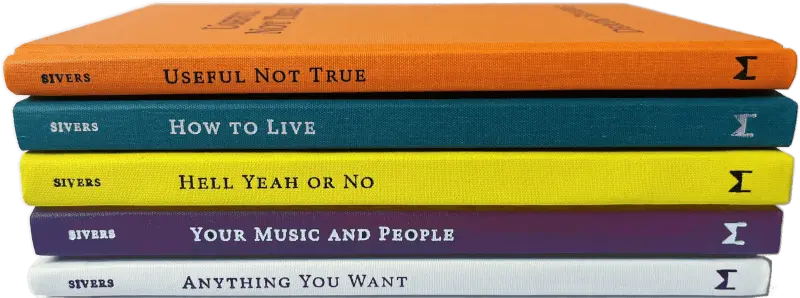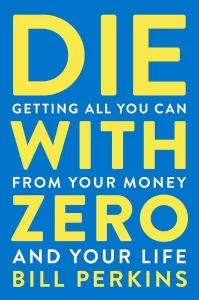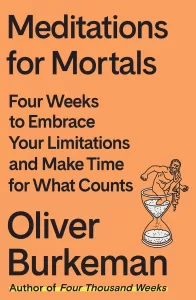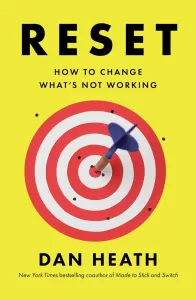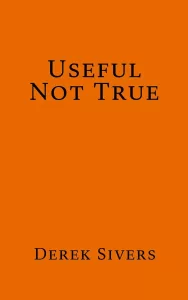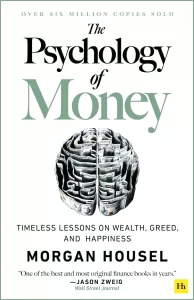Book Review: “Useful Not True”
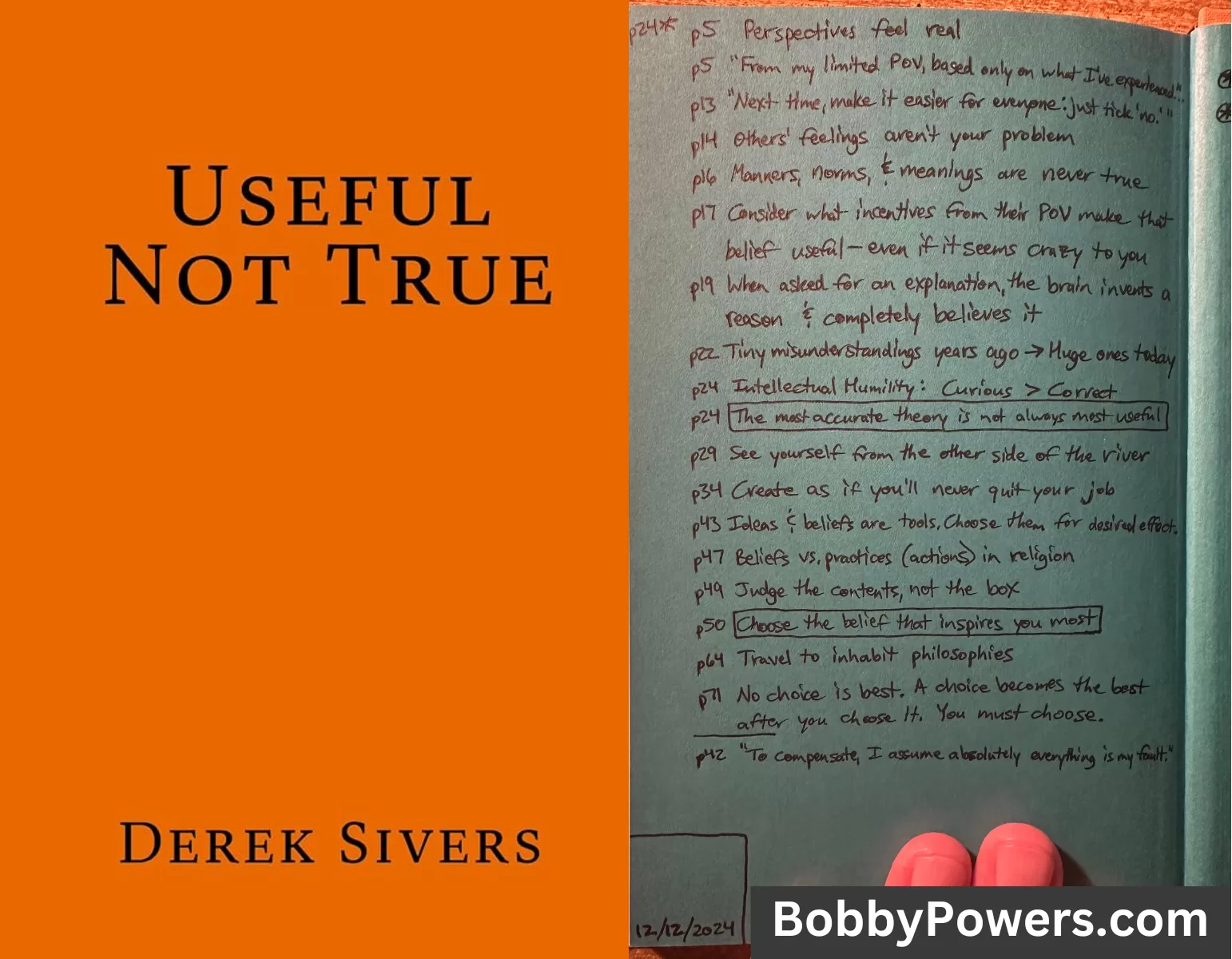
Book: Useful Not True by Derek Sivers
Reviewer: Bobby Powers
My Thoughts: 7 of 10
I love Derek Sivers. He shares controversial wisdom you can't find anywhere else, and none of his books contain a single word of bloat. He says more in 100 pages than most authors do in 300. His newest (tiny) book prompts readers to determine what beliefs best serve them in being helpful and productive.
What I Learned from the Book
In this book, Sivers expounds upon an esoteric but important concept: many things that people believe about the world and themselves are not factually true. They're just opinions. And because so many of the things we believe are opinions, we should choose our beliefs based on what they will achieve for us.
One personal example: Sometimes I view myself as not having accomplished enough in life. I'll look at the work of others my age (like Ryan Holiday or Tim Ferriss) and think I should have accomplished more by now. But at other times, I'm satisfied and impressed with what I've been able to accomplish. The facts of my life haven't changed, but I'm viewing those facts from a different angle.
Sivers may say that I should go ahead and compare myself to Holiday or Ferriss if it encourages me to write more. But if that comparison makes me wallow in misery and write less, the comparison isn't serving me. So he'd say I should lean into the idea that I've accomplished a lot.
In other words, you should choose the belief that leads to the action you want to drive. Again, this is quite esoteric and philosophical, but it can be a powerful concept if you take it to heart.
"Before we begin, I need to sharpen that word: 'true'...When I say 'true', I mean absolutely, necessarily, objectively true. It's not only in the mind. Any creature or machine could observe it and agree. It's a concrete fact—always, everywhere, and for everyone...
Notice that 'not true' does not mean false! It just means not necessarily, objectively, absolutely true for everyone, everywhere, always."
Selected Quotes & Ideas from the Book
Almost Nothing People Say Is "True"
- "This book is about reframing—changing how you think about something—and choosing a perspective that's useful to you right now, whether or not it's universally true."
- People often say phrases like the following:
- "This house is overpriced."
- "Nothing matters more than family."
- "You're talking too much."
- "To the person speaking, these feel like facts, not opinions. They really think that house is overpriced, and you're talking too much. But someone is happy to buy that house at that price, and someone wants you to talk more, so their statements are not necessarily true."
- "No picture is the whole picture. It's just one of many possible angles."
- "Some people say their feelings are your problem. But that's ridiculous. You can't control people's feelings. They are able to choose their response. (The word 'responsible' comes from response-able.) Everyone has their own problems. To know whose problem it is, think who benefits most from solving it."
- "When someone tells you what something means, it's never true because it's not the only answer. It's just one perspective. You might do something you think is polite, only to have someone tell you it's rude."
- "Manners, norms, and meanings are never true. This is important to remember when people tell you this is good, that is bad, this means that, etc."
- "The more emotional the belief, the less likely it's true...If it was absolutely objectively true, there would be no need to get upset. You could just point to the conclusive proof. That's that."
How to Understand Others
- "When someone believes something that seems crazy to you, consider what incentives, from their point of view, make that belief useful. It helps you understand someone, and helps you feel less defensive. It helps you separate the person and the actions—to see their beliefs not as who they are, but as something they're currently holding for a purpose."
- "When asked for an explanation, the brain invents a reason and completely believes it. To that person, the explanation feels like absolute fact—the kind they swear is true, believe deeply in their core, and will fight to defend!"
- "People's motives are unknowable, even to themselves. Let go of the need for a reason. Ignore their explanations. The only true facts are their actions."
- "The tiniest misunderstanding long ago, amplified through time, leads to giant misunderstandings in the present."
- "Listen to ideas, not their messenger. Focus on the contents, not the box. Avoid ideology."
Accounting for Our Mistakes
- "It's better to be curious than correct."
- "The most accurate theory is not always the most useful. And a rule of thumb can be far from true, but good enough to get you where you need to go."
- "I try to think straight, but sometimes my thoughts lean to one side. When my mind is missing the target, I aim it the other direction, to compensate."
- "I tend to blame others too much. Everything bad is someone else's fault. So, to compensate, I assume absolutely everything is my fault."
- "I tend to underestimate how much time a project will take. So, to compensate, I make my best prediction, then double it."
- "I tend to assume I'm right. Then I noticed I was talking more than listening, and wasn't learning. So, to compensate, I assume I know nothing and have a lot to learn."
- "To be clear: The new thought is not meant to be correct. It's a counter-balance, to correct for my tendencies."
- "Beliefs create emotions. Emotions create actions. Choose a belief for the action it creates...One thought makes you act selfish. Another makes you act generous. One thought makes you do something stupid. Another makes you do something smart. Which belief is right? Wrong question. Which belief leads to the action you need now?"
- "Are you more inspired to think you've arrived, or have a long way to go?... Which story helps you do what you need to do, be who you want to be, or feel at peace?"

